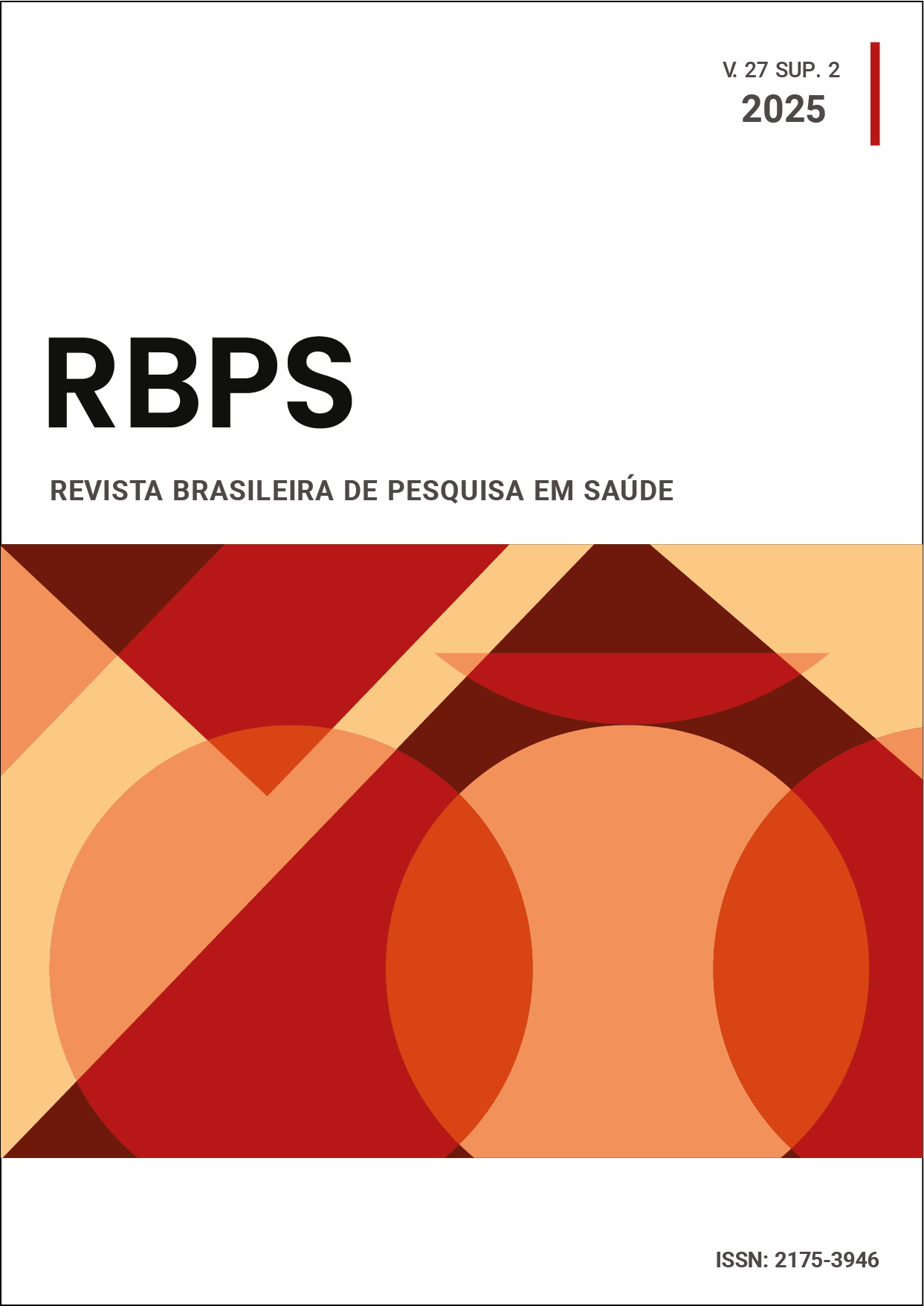Literature review on parental alienation
the invisibility of violence against women and children
DOI:
https://doi.org/10.47456/rbps.v27isupl_2.48412Keywords:
Gender inequality, Child protection, Domestic violence, Violence against women, Child abuseAbstract
Introduction: This article focuses on the Parental Alienation Law – PAL (Law No. 12,318/2010), based on the theory of American psychiatrist Richard Gardner, evaluating its scientific weaknesses and the criticisms regarding the reinforcement of gender inequalities. Objectives: The study aims to assess the limitations of the Parental Alienation Law, question its punitive application, and discuss the impacts of this legislation on the protection of women and children, especially in the context of domestic violence reports. Methods: This is a descriptive qualitative research based on a literature review. Academic publications indexed in databases from 2014 to 2024 were analyzed, allowing an understanding of contemporary discussions on the topic. Results: The findings indicate that, despite the protective character of the legislation, it can be used as an instrument of institutional violence within the Justice System, perpetuating gender stereotypes and neglecting the complexities of family dynamics. Furthermore, the application of the law has delegitimized reports of domestic violence, compromising the comprehensive protection of victims. The role of social workers is highlighted as essential for critical analyses that incorporate power and gender relations in family disputes. Conclusion: It is concluded that the revocation of the Parental Alienation Law (Law No. 12,318/2010) is necessary, considering its impacts on the perpetuation of violence and inequalities. It is recommended to adopt public policies that promote the comprehensive protection of families, prioritize the prevention and confrontation of domestic violence, and ensure the fundamental rights of women and children.
Downloads
References
Gardner RA. Recent trends in divorce and custody litigation. Academy Forum. 1985;29(2):3–7.
Marangoni CA, Kopp JÁ, Marinho MO. A utilização da Lei de Alienação Parental como instrumento de realização de violência psicológica contra mulheres. Rev Bras Estud Gênero. 2022;20(2).
Brasil. Lei nº 12.318, de 26 de agosto de 2010. Dispõe sobre alienação parental e altera o art. 236 da Lei nº 8.069, de julho de 1990 [Internet]. Brasília: Diário Oficial da União; 2010 [citado 2024 set 1–2025 jan 31]. Disponível em: http://www.planalto.gov.br/ccivil_03/_Ato2007-2010/2010/Lei/L12318.html
Hümmelgen I, Cangussú KJ. Estereótipos de gênero no direito das famílias: um estudo da doutrina jurídica sobre alienação parental. Rev Dir Mulher. 2017;19(3):99–116.
Brandão EP, Azevedo LJC. Poder, norma e ideário na Lei da Alienação Parental. Rev Psicol Dir. 2023;25(2):40–55.
Rocha EF. Serviço Social em Varas de Família: o litígio familiar e a alienação parental sob a perspectiva das relações sociais de sexo. Rev Serv Soc Dir Hum. 2018;18(2):148–63.
Mendes IRF. Lei de alienação parental: reflexões sobre movimentos de oposição, possibilidade de revogação, efetividade e questões de gênero [monografia]. Santa Rita: Universidade Federal da Paraíba; 2023. 57 f.
Andrade AP, Lemos SL. A lei de alienação parental e a lei da guarda compartilhada obrigatória: para o melhor interesse da manutenção da violência contra mulheres/mães e crianças. Rev Praia Vermelha. 2022;32(1):226–44.
Batista TT. Gênero, cuidado e alienação parental: a construção social da mãe alienadora. Rev Estud Fem. 2021;28(4):745–62.
Batista TT. Judicialização, criminalização e alienação parental: a atuação profissional de assistentes sociais. Rev Serv Soc Polit. 2021;32(1):132–50.
Brizola J, Fantin N. Revisão da literatura e revisão sistemática da literatura. Rev Educ Vale Arinos [Internet]. 2016;3(2):23–39 [citado 2024 set 1–2025 jan 31]. Disponível em: https://periodicos.unemat.br/index.php/relva/article/view/1738
Menezes RS. O outro lado da lei de alienação parental: a violência contra mulheres e crianças legitimadas pelo sistema de justiça. Rev Bras Dir Fam Sucess. 2021;11(1):52–66.
Valente MLCS, Batista TT. Alienação parental: gênero e construção social na esfera do cuidado. Rev Bras Psicol Soc. 2020;36(1):68–85.
Brasil. Lei nº 8.069, de 13 de julho de 1990. Dispõe sobre o Estatuto da Criança e do Adolescente [Internet]. Brasília: Diário Oficial da União; 1990 [citado 2024 set 1–2025 jan 31]. Disponível em: https://www.planalto.gov.br/ccivil_03/leis/l8069.html
Brasil. Lei nº 11.340, de 7 de agosto de 2006. Dispõe sobre a prevenção e o combate à violência doméstica e familiar contra a mulher [Internet]. Brasília: Diário Oficial da União; 2006 [citado 2024 set 1–2025 jan 31]. Disponível em: https://www.planalto.gov.br/ccivil_03/_ato2004-2006/2006/lei/l11340.html
Hogemann ER, Araújo LMM, Cipriano SP. O machismo no judiciário e seu reflexo como forma de violência institucional nas varas de família. Rev Dir Genero. 2021;21(2):80–97.
Brasil. Lei nº 13.431, de 4 de abril de 2017. Dispõe sobre a criação do sistema de garantia de direitos da criança e do adolescente vítima ou testemunha de violência [Internet]. Brasília: Diário Oficial da União; 2017 [citado 2024 set 1–2025 jan 31]. Disponível em: https://www.planalto.gov.br/ccivil_03/_ato2015-2018/2017/lei/l13431.html
Conselho Federal de Serviço Social (CFESS). Nota técnica sobre o depoimento especial e o exercício profissional do/a assistente social [Internet]. Brasília: CFESS; 2020 [citado 2024 set 1–2025 jan 31]. Disponível em: https://www.cfess.org.br/arquivos/nota-CNJ-cfess-2020.pdf
Batista TT. Alienação Parental: reflexões sobre a lei e a atuação profissional das/os assistentes sociais. Rev Serv Soc. 2017;27(2):210–25.
Valente MLCS, Batista TT. Violência doméstica contra a mulher, convivência familiar e alegações de alienação parental. Rev Bras Just Cidadania. 2021;32(3):201–20.
Associação Americana de Psiquiatria. Manual de diagnóstico e estatístico de transtornos mentais (DSM-5 TR). 5. ed. Arlington: American Psychiatric Publishing; 2013.
Organização das Nações Unidas (ONU) Mulheres. Inadmissibility of “parental alienation syndrome” [Internet]. Nova York: ONU Mulheres; 2011 [citado 2024 set 1–2025 jan 31]. Disponível em: https://www.endvawnow.org/en/articles/424-inadmissibility-of-parental-alienation-syndrome.html
Organização dos Estados Americanos (OEA). Declaración sobre la violencia contra las niñas, mujeres y adolescentes y sus derechos sexuales y reproductivos [Internet]. Montevidéu: OEA; 2014 [citado 2024 set 1–2025 jan 31]. Disponível em: https://www.oas.org/es/mesecvi/docs/DeclaracionDerechos-ES.pdf
Downloads
Published
How to Cite
Issue
Section
License
Copyright (c) 2025 Brazilian Journal of Health Research

This work is licensed under a Creative Commons Attribution-NonCommercial-NoDerivatives 4.0 International License.
Authors and reviewers must disclose any financial, professional, or personal conflicts of interest that could influence the results or interpretations of the work. This information will be treated confidentially and disclosed only as necessary to ensure transparency and impartiality in the publication process.
Copyright
RBPS adheres to the CC-BY-NC 4.0 license, meaning authors retain copyright of their work submitted to the journal.
- Originality Declaration: Authors must declare that their submission is original, has not been previously published, and is not under review elsewhere.
- Publication Rights: Upon submission, authors grant RBPS the exclusive right of first publication, subject to peer review.
- Additional Agreements: Authors may enter into non-exclusive agreements for the distribution of the RBPS-published version (e.g., in institutional repositories or as book chapters), provided the original authorship and publication by RBPS are acknowledged.
Authors are encouraged to share their work online (e.g., institutional repositories or personal websites) after initial publication in RBPS, with appropriate citation of authorship and original publication.
Under the CC-BY-NC 4.0 license, readers have the rights to:
- Share: Copy and redistribute the material in any medium or format.
- Adapt: Remix, transform, and build upon the material.
These rights cannot be revoked, provided the following terms are met:
- Attribution: Proper credit must be given, a link to the license provided, and any changes clearly indicated.
- Non-Commercial: The material cannot be used for commercial purposes.
- No Additional Restrictions: No legal or technological measures may be applied to restrict others from doing anything the license permits.

























